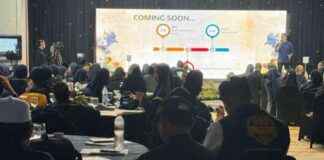Baznas: A Pioneering Force in National Development and Poverty Alleviation
In a bustling metropolis, at the heart of Jakarta, Mokhamad Mahdum, the Vice Chairman of the National Amil Zakat Agency (Baznas) of Indonesia, stands firm in Baznas’ unwavering commitment. This commitment transcends mere words—it is a steadfast dedication to optimizing the management of Zakat, Infak, and Sedekah (ZIS) to drive national development and alleviate poverty across the archipelago.
Mahdum’s words resonate with conviction as he emphasizes the pivotal role of Ziswaf. It goes beyond being a simple wealth distribution instrument; it is a strategic force that propels sustainable economic empowerment within the community. By harnessing innovative and professional approaches in Ziswaf management, the effectiveness of uplifting mustahik to muzakki is enhanced, accelerating the attainment of sustainable development goals rooted in Sharia principles.
Baznas’s Innovative Strategies for Zakat Management
At the core of Baznas’s operational framework lies a rigorous evaluation standard for zakat management, exemplified by the National Zakat Index (IZN). This index serves as a performance metric, ensuring continual enhancements in zakat administration. Currently, Indonesia’s Zakat Literacy Index stands at 74.83, marking it within the intermediate category. To elevate this standard, Baznas tirelessly conducts educational campaigns and community outreach efforts to deepen public understanding of the significance of zakat.
Moreover, Baznas has embarked on a digital transformation journey to streamline zakat payments. Collaborating with 24 banks, 24 commercial application platforms, seven non-commercial platforms, and various social media and e-commerce channels, Baznas has revolutionized the process. Introducing Zakat Virtual Assistant and Voice Command Zakat Assistant based on Artificial Intelligence (AI) technology has further augmented efficiency and transparency. Notably, digital zakat collection has surged by an average of 202.5% over the past decade, underscoring the transformative power of technological integration.
Baznas’s Impactful Programs and Collaborative Initiatives
The allocation of ZIS funds transcends traditional consumptive aid, extending toward economic empowerment programs such as supporting micro, small, and medium enterprises (UMKM), fostering creative economies, and bolstering agriculture. In 2024 alone, Baznas disbursed Rp68.3 billion to 26,778 UMKM beneficiaries, aiming to catalyze a long-term shift from mustahik to muzakki.
Furthermore, Mahdum underscores the criticality of forging synergies with the government and private sectors. Such alliances are pivotal in ensuring the efficacy, integration with local policies, and sustainability of ZIS-centric initiatives. Every Baznas program contributes holistically to achieving the Sustainable Development Goals (SDGs), with a balanced fund allocation across varied sectors like social welfare, education, economy, health, advocacy, and empowerment endeavors.
Emphasizing a commitment to transparency and accountability, Baznas conducts annual independent audits, garnering the prestigious Unqualified Opinion (WTP) from the Supreme Audit Agency of Indonesia (BPK RI). The institution has also spearheaded the development of the Baznas Management Information System (SIMBA) to monitor real-time fund inflows and outflows meticulously.
As the year unfolds, Baznas has identified ten key priority programs, including scholarships and education, Baznas Microfinance, Zmart, ZChicken, Santripreneur, Decent Housing by Baznas (RLHB), Healthy Homes by Baznas, as well as initiatives targeting extreme poverty eradication and stunting mitigation.
In a poignant appeal to the public, Mahdum urges individuals to purify their wealth by fulfilling their zakat obligations, encompassing not only zakat fitrah but also zakat mal, zakat on professions, zakat on companies, agricultural zakat, and beyond. The call reverberates with sincerity, urging citizens to channel their zakat, infak, and sedekah through authorized institutions sanctioned by the Ministry of Religious Affairs, with Baznas at the forefront.
To conclude, Baznas stands as an exemplar of unwavering dedication to national development and poverty alleviation, harnessing the transformative power of ZIS to uplift communities and foster sustainable progress. Through collaborative partnerships, innovative initiatives, and a commitment to transparency, Baznas paves the way for a brighter, more inclusive future for Indonesia.














